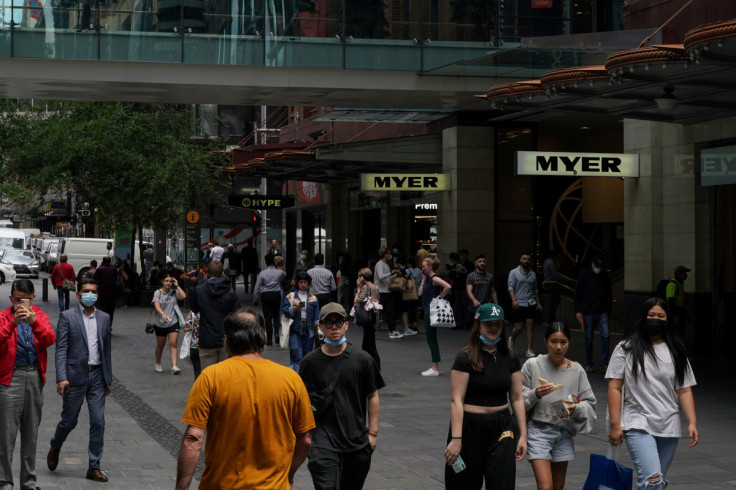Australia Retail Sales Level Off In Feb As Shoppers Rein In Spending

Australian retail sales levelled off in February after wild swings around the year-end holidays, suggesting consumers are reining in spending in the face of higher living costs and rising interest rates.
Data from the Australian Bureau of Statistics (ABS) on Tuesday showed retail sales rose just 0.2% in February, compared to a revised 1.8% rise in January. Sales of A$35.14 billion ($23.48 billion) were 6.4% higher than a year earlier.
The figure beat median forecasts of a 0.1% rise, pushing the local dollar higher to $0.6674, up 0.4% for the day.
However, the data confirmed that Australian consumers are clearly slowing purchases, with retail sales volumes likely contracting on higher prices, supporting the case for a rate pause by the Reserve Bank of Australia (RBA) at its April policy meeting.
Consumers continued to spend more on food in February, but there were smaller bounces in discretionary spending such as at department stores, clothing, footwear and personal accessory.
Belinda Allen, an economist at Commonwealth Bank of Australia, expects a further moderation in consumer spending over the coming months as the impact of higher interest rates continues to intensify.
"Together with negative real wages growth, this will impact households' available cash flows," she added.
RBA Governor Philip Lowe has said the central bank was closer to pausing its rate increases because monetary policy was now in restrictive territory, and suggested a halt could come as soon as April depending on the data.
Monthly inflation data to be released on Wednesday could also be a determining factor.
Analyst forecasts consumer inflation likely eased to an annual rate of 7.1% in February, from 7.4% in January.
Other data releases have printed on the strong side. Australia employment rebounded strongly in February, the jobless rate eased back to near 50-year lows, and business conditions remained resilient.
The RBA has already lifted rates by 350 basis points to an 11-year peak of 3.6% and has said further tightening of monetary policy was likely needed.
However, markets suspect that stance might have been overtaken by recent turmoil in the global banking system that threatens to sharply tighten financial conditions.
Investors have all but priced out any chance of a further hike in the cash rate, and even forecast a chance of a cut later in the year.
But many analysts still think the RBA will hike at least once more, though some believe it might pause in April before moving in May following inflation data for the first quarter.
© Copyright Thomson Reuters {{Year}}. All rights reserved.





















